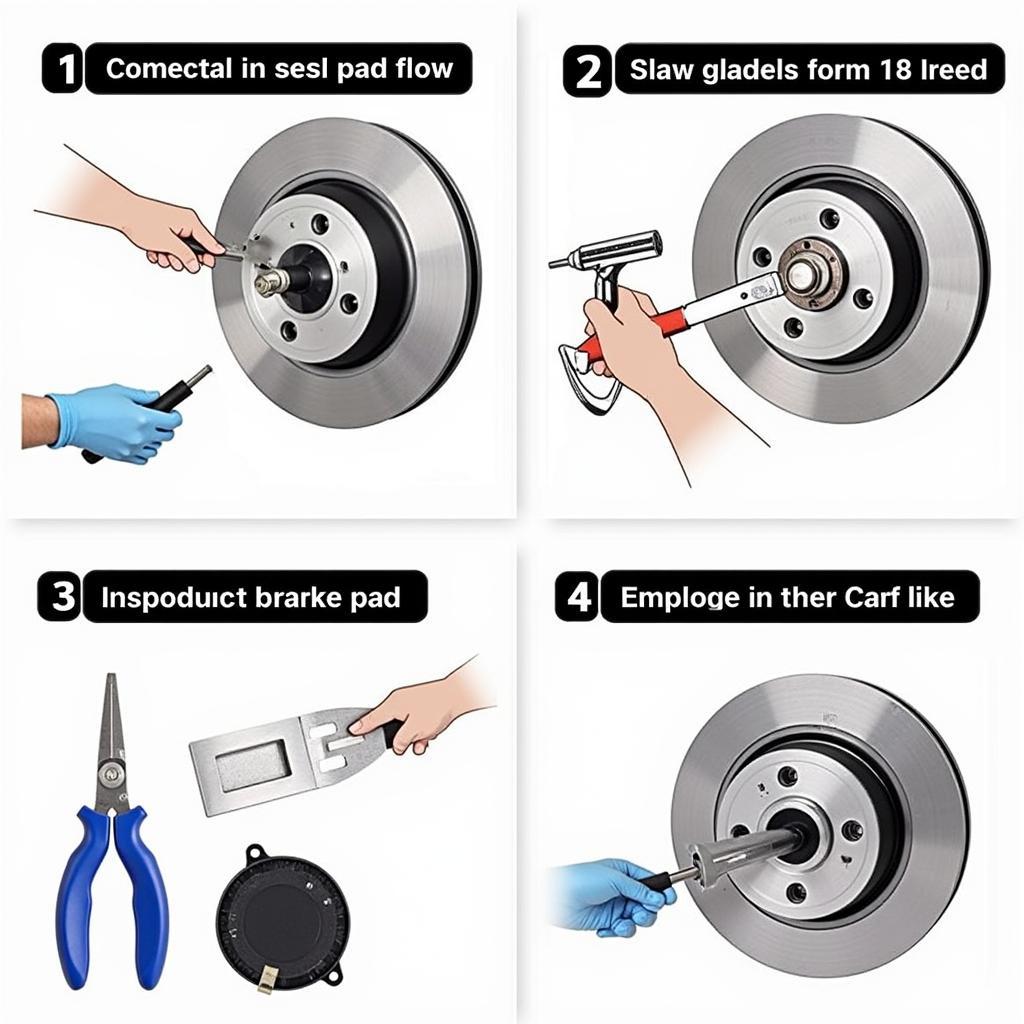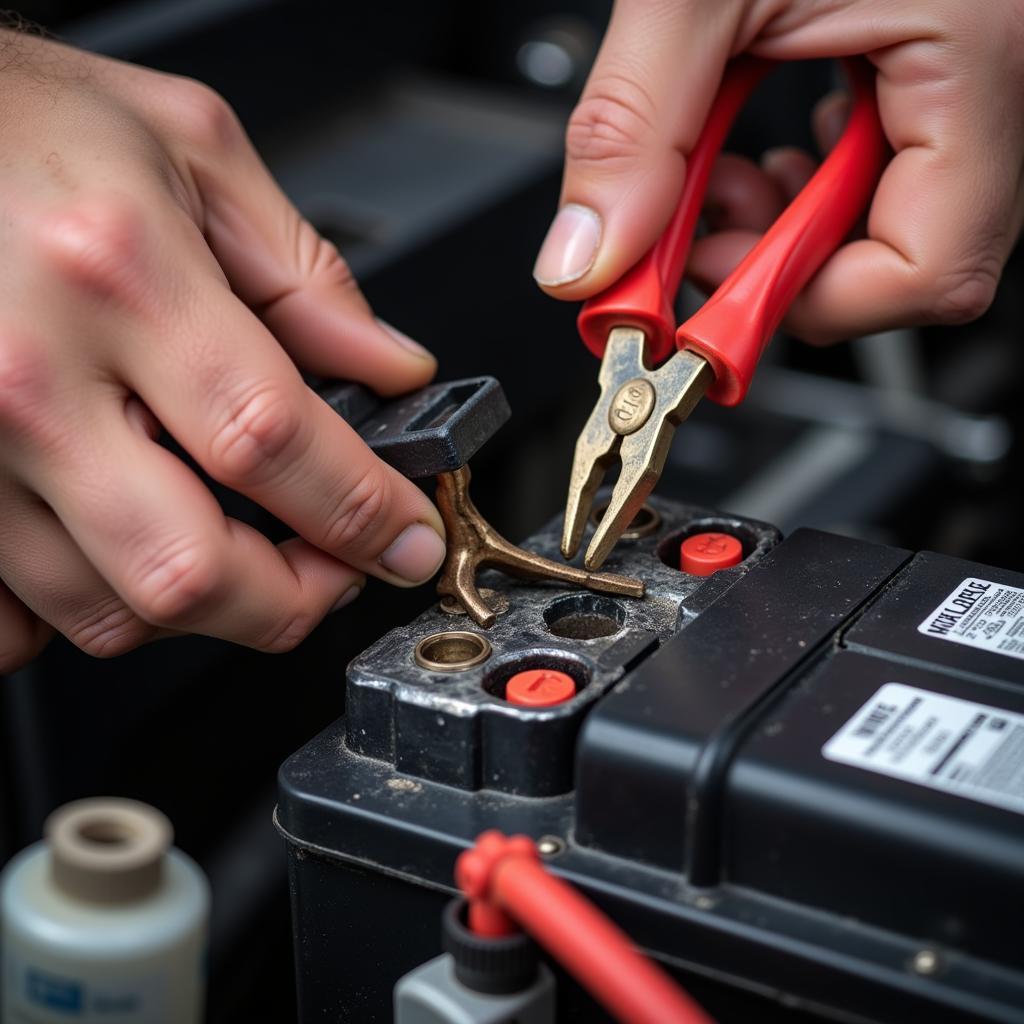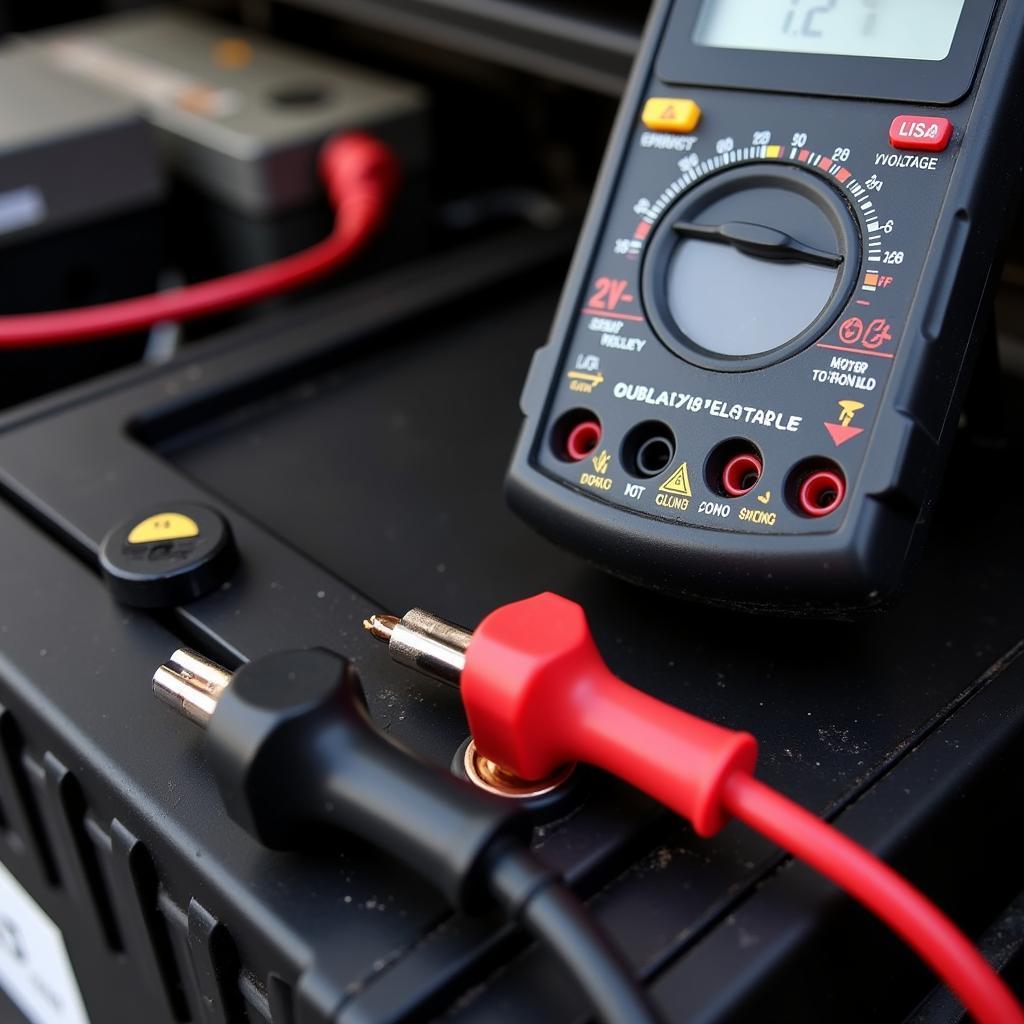The dreaded Hyundai Elantra brake warning light can be a source of anxiety for any driver. This guide will delve into the common causes, diagnostic procedures, and potential solutions for a Hyundai Elantra brake warning light, empowering you to understand and address this issue effectively.
Understanding Your Hyundai Elantra’s Brake System
Your Hyundai Elantra’s braking system is a complex network of components working together to ensure your safety. From the brake pedal to the calipers and rotors, each part plays a vital role. Understanding how these components interact is crucial to diagnosing brake warning light issues. The brake warning light itself serves as an early warning system, alerting you to potential problems before they escalate into dangerous situations. Ignoring this light can lead to serious consequences.
If you’re looking to upgrade your car’s audio system, check out how to convert your car radio to Bluetooth.
Common Causes of the Brake Warning Light
The brake warning light can illuminate for several reasons. One common culprit is low brake fluid. The brake fluid level sensor monitors the amount of fluid in the reservoir, triggering the warning light when it drops below a safe level. A leak in the brake lines or worn brake pads can cause this. Another potential issue is a faulty parking brake switch. If the switch malfunctions, it can signal the brake warning light even when the parking brake is disengaged. Additionally, problems with the ABS (Anti-lock Braking System) can also trigger the light.
“Regular brake inspections are crucial for maintaining your Hyundai Elantra’s safety and preventing costly repairs down the line,” advises James Park, a certified automotive technician with over 20 years of experience.
Diagnosing the Problem
Diagnosing a brake warning light issue requires a systematic approach. Begin by checking the brake fluid level. If it’s low, inspect the brake lines for leaks and check the brake pad thickness. If the fluid level is adequate, inspect the parking brake switch and wiring for damage or malfunction. You can often do this visually or with a multimeter. For ABS-related issues, a diagnostic scanner can help pinpoint the specific fault code. This allows for a more targeted repair.
You can find more information on converting your old car radio to Bluetooth for a modern audio experience.
Solutions and Repairs
Once you’ve identified the cause, address the issue promptly. Low brake fluid requires topping up the reservoir with the correct type of brake fluid specified for your Hyundai Elantra. Leaking brake lines or worn brake pads demand immediate replacement by a qualified mechanic. A faulty parking brake switch or ABS components usually require replacement as well.
 Replacing Brake Pads on a Hyundai Elantra
Replacing Brake Pads on a Hyundai Elantra
“Addressing brake problems promptly can prevent further damage and ensure your safety on the road,” adds Maria Sanchez, a leading automotive safety expert.
Why is My Hyundai Elantra Brake Warning Light Flashing?
A flashing brake warning light often indicates a more serious problem with the ABS system. This requires immediate attention.
Can I Drive My Hyundai Elantra with the Brake Warning Light On?
Driving with the brake warning light on is highly discouraged. It can be dangerous.
How to Reset the Hyundai Elantra Brake Warning Light?
The brake warning light will automatically reset once the underlying issue is resolved.
How Much Does it Cost to Fix a Hyundai Elantra Brake Warning Light Issue?
The cost of repair varies depending on the specific problem, ranging from a simple fluid top-up to more expensive component replacements.
Adding a backup camera and GPS to your old car radio can significantly enhance your driving experience.
Conclusion
Addressing the Hyundai Elantra brake warning light promptly is essential for ensuring your safety and preventing further damage to your vehicle. By understanding the potential causes, following diagnostic procedures, and seeking professional help when needed, you can keep your brakes in optimal condition and enjoy peace of mind on the road.
Learn how to convert your car radio to GPS, Bluetooth, and a backup camera.
FAQs
-
What does the Hyundai Elantra brake warning light mean? The brake warning light indicates a potential problem with your braking system, such as low brake fluid, a faulty parking brake switch, or an issue with the ABS.
-
Is it safe to drive with the brake warning light on? No, it’s highly unsafe and you should address the issue immediately.
-
What should I do if my Hyundai Elantra brake warning light comes on? Check your brake fluid level, inspect your brake lines, and consult a qualified mechanic if the problem persists.
-
How can I prevent my Hyundai Elantra brake warning light from coming on? Regular brake maintenance, including fluid checks and pad replacements, can help prevent brake warning light issues.
-
What is the difference between a solid and flashing brake warning light? A solid light typically indicates a problem with the hydraulic system, while a flashing light often signals an ABS issue.
-
How often should I check my Hyundai Elantra’s brake fluid level? It’s recommended to check your brake fluid level at least once a month.
-
Can I reset the brake warning light myself? The light typically resets automatically once the underlying issue is resolved. However, for ABS-related problems, a diagnostic scanner might be needed.



